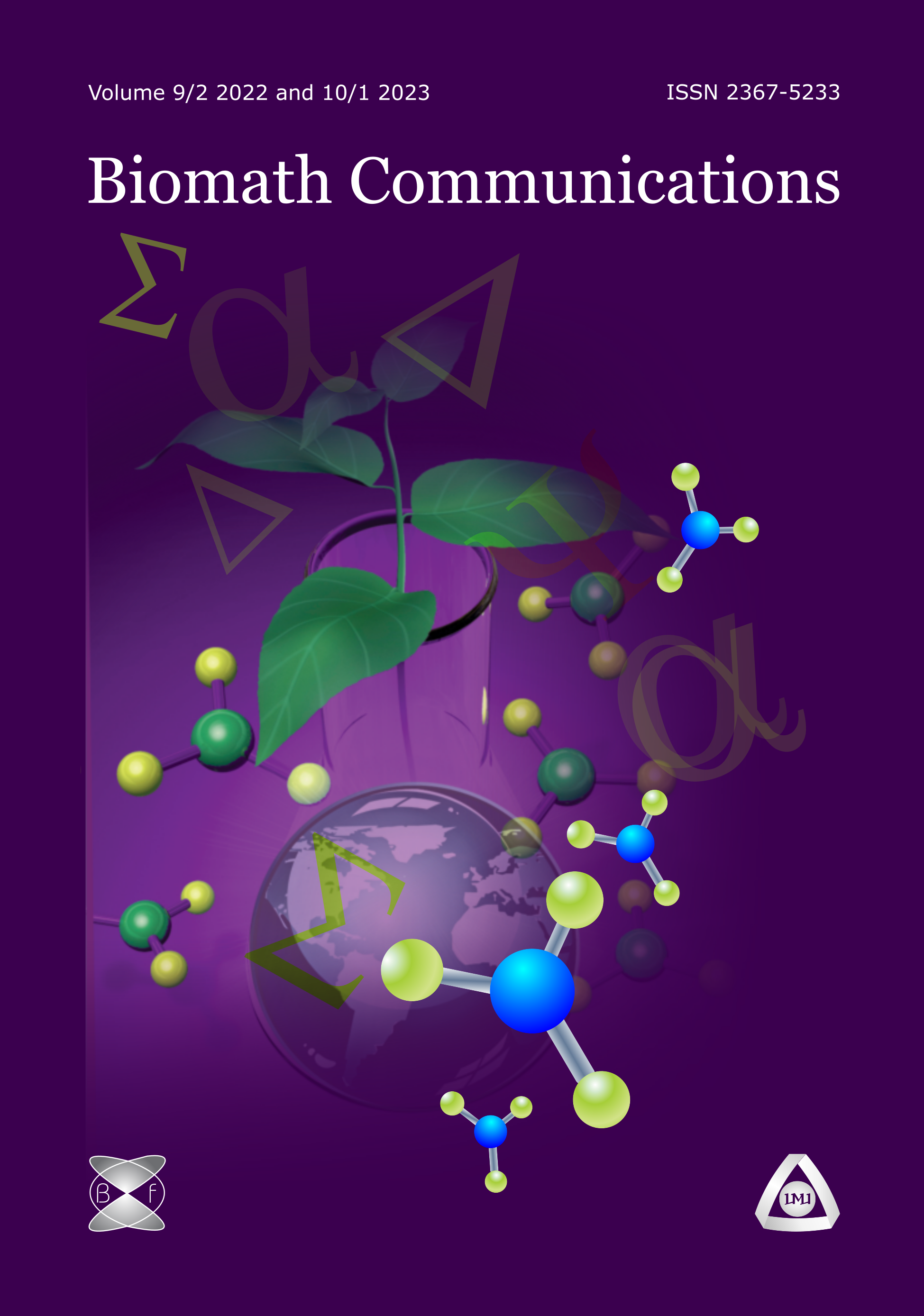Estimates of the Offspring Probabilities in a Class of Multitype Branching Processes with Binary Family Trees with Partial Observation
DOI:
https://doi.org/10.11145/422Abstract
Multitype branching processes (MTBP) traditionally serve as models in biology in studies of cell proliferation. A sampling scheme that appears frequently is observing the cell count in several independent colonies at discrete time points, sometimes only one. The process is not observable in the sense of the whole tree, but only as the generation at given moment in time, which consists of the number of cells of every type. The EM algorithms are widely used to obtain a maximum likelihood (ML) estimation with incomplete observation. An EM estimation of the offspring distribution is presented in the class of Markov branching processes with binary family trees. In this special case it leads to the same estimates, as using the whole tree observation. This result implies that there is no need to observe the whole process in laboratory experiments to obtain the estimates in such models.
Acknowledgments: The research was partially supported by the National Fund for Scientific Research at the Ministry of Education and Science of Bulgaria, grant в„– DFNI-I02/17.
Downloads
Published
Issue
Section
License
The journal Biomath Communications is an open access journal. All published articles are immeditely available online and the respective DOI link activated. All articles can be access for free and no reader registration of any sort is required. No fees are charged to authors for article submission or processing. Online publications are funded through volunteer work, donations and grants.
Authors who publish with this journal agree to the following terms:
- Authors retain copyright and grant the journal right of first publication with the work simultaneously licensed under a Creative Commons Attribution License 4.0 that allows others to share the work with an acknowledgement of the work's authorship and initial publication in this journal.
- Authors are able to enter into separate, additional contractual arrangements for the non-exclusive distribution of the journal's published version of the work (e.g., post it to an institutional repository or publish it in a book), with an acknowledgement of its initial publication in this journal.
- Authors are permitted and encouraged to post their work online (e.g., in institutional repositories or on their website) prior to and during the submission process, as it can lead to productive exchanges, as well as earlier and greater citation of published work (See The Effect of Open Access).

